Matthew Salesses: Yellowface in CLOUD ATLAS
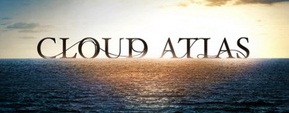
This piece was originally published by Matthew Salesses for The Good Men Project and is republished here with permission. Check out the trailer for Cloud Atlas here.
Shame on the movie business. Last night, I found out that the new Cloud Atlas movie will be sporting several actors in yellowface–that is, white actors made up to look Asian. You can see Hugo Weaving with slanty-eyes above. This is an absolute travesty, and it is being described elsewhere as “awesome” (Indiewire) and “ambitious” (everywhere). Why?
Cloud Atlas is based on a book of the same title that was published in 2004 to enormous acclaim, including being shortlisted for the Booker Prize and the Nebula Award and winning several best book of the year awards. It was also called ambitious everywhere, including by Tom Bissell in the New York Times, who called its author, David Mitchell, “clearly, a genius.” The book consists of six stories, told in the pattern 1 2 3 4 5 6 5 4 3 2 1, like nesting dolls split open to the doll in the center. Each story covers a different period in time, sequentially, so that by the time we get to 5 and 6, the stories are in the future. The 5th story takes place in a “corpocracy” in what appears to be Korea, where corporations are the government and the waitresses at the major food chain, Papa Song’s, are genetically-engineered fabricants, or clones. The 6th story takes place in the far far future, in a post-apocalyptic world, after the corpocracy has fallen. The (main) characters are all connected, sharing a specific birthmark. Mitchell has said that they “are reincarnations of the same soul” and that “the book’s theme is predacity … individuals prey on individuals, groups on groups, nations on nations.“
The yellowface is clearly being used as a way to show that interconnectedness, and to tell the viewer that these characters share this reincarnated soul. Yet the movie is far underestimating its viewers by doing this. It is telling viewers that we are too stupid to understand the connection by a simple birthmark; that we are too stupid to see similarities between different races, different people; that we are too stupid to see beyond appearances. And it is telling us this by being this stupid itself.
Mitchell’s remarks, that “individuals prey on individuals, groups on groups, nations on nations,” strikes me here as being so on the nose. I can’t help but see this use of yellowface as degrading and offensive and perhaps even a value statement on race. Hear me out.
Cloud Atlas was a chance, here, to showcase Asian actors in an Asian future, a corrupt future, yes, but an advanced society leading a world economy (if I remember correctly from the book). Hollywood has a long history of relegating Asian actors to stereotypes: the sensei with unusual teaching methods, the martial artist, the gangster, the weird foreigner, or the nerd. It is a fact often bemoaned by Asian Americans, and it is a large reason why a film like Harold and Kumar Go to Whitecastle can be seen as revolutionary while in basically every other way, it is a typical buddy comedy. Cloud Atlas could have given many Asian actors a shot and brought a lot of attention to them, through a big budget movie aimed at a wide and inclusive audience. Watching the trailer, I was excited to see one of my favorite Korean actresses, Bae Doona, who will play the fabricants. I was excited to see that the movie hadn’t whitewashed the Asian section of the book completely, replacing the Asian world with a white one, as so many movies and movie remakes do. But that was until I realized that the other people in the future, the ones not genetically engineered and not serving food at a restaurant chain, the real people, that is, will be played by white people in yellowface.
It is hard to realize this and not realize the cultural implications here. Let me spell it out again: in the future, even in a Korean future, the genetically engineered servants are Asian while the people being served are, underneath, white.
I spent all night unable to sleep. This yellowfacing of a well-known and well-loved book hit particularly close to home for me, as a writer and reader, and even more so as an adoptee, as someone who still sometimes cannot get it out of his head that he is not white. I grew up with white parents and white American “culture.” The parts of me that I hated, that somehow didn’t feel true, were the Korean parts. Yet I don’t think this was something I entirely put on myself. For a long time, I thought something was wrong with me—it is still hard to not to think this way—but I have realized that the reason I hated my small nose and small eyes was because I was being taught that people who looked like me were somehow lesser than white people. The movies taught me this. My peers, taught by movies and culture, taught me this. The looks I got when I went anywhere with my parents taught me this. I am still being taught this, when I walk around Cambridge—even Cambridge, MA—and get harassed by white people, greeted with a condescending “Ni Hao” by a homeless person, as if I couldn’t understand “Hello,” as if I needed to be singled out for my appearance, and as if all Asians are one ethnicity.
I know I never felt like the parts of me that are Korean were the wrong parts when I was in Korea. I know this wasn’t on me.
Though some people would still have me think that it is.
Last week, after Gabby Douglas won a gold medal in the all-around gymnastics, the camera cut to Bob Costas, who said, “You know, it’s a happy measure of how far we’ve come that it doesn’t seem all that remarkable, but still it’s noteworthy, Gabby Douglas is, as it happens, the first African-American to win the women’s all-around in gymnastics. The barriers have long since been down, but sometimes there can be an imaginary barrier, based on how one might see oneself.” This after Douglas had mentioned that she was an underdog because she is black. Indeed, she is the first black woman to win a gold in her event. But Costas would have her believe that the difficulties she faced (faces) were all in her head.
He would have her believe this because he is white. There will be people (white people) who say Costas is right, that racism is dead, that Cloud Atlas is “awesome” for putting white actors in yellowface to show that we are all connected. Some of these people will be racists. Some of these people may actually have good intentions.
We all wish that there were no boundaries left, that Gabby Douglas didn’t face any extra challenges because of her race, that minorities and women do not face a bamboo or glass ceiling, that people are judged not for their skin color but for their individuality. Maybe Costas’s assertion and the blatant yellowfacing contains some kind of hope or largess or generosity of spirit (though how to explain the belittling of those who still feel the effects of being different). The truth is, though, that sexism and racism and discrimination of all types exist and even flourish. Only a few days ago, a white supremacist opened fire on a Sikh temple. He was an individual, but he is not alone.
On my twitter feed last night, while I was going off on yellowface and unable to turn off the inner tears, someone tweeted back to me that it seemed like the makeup was something the makers of Cloud Atlas seemed to be showing off, seemed to be proud of. And it does seem that way–these are the images plastered all over the movie’s webpage.
This, the producers might say, is what we can do in movies now. We can show how connected people are by using one actor to represent six characters. This is ambition. This is scope. This is the future. And despite not loving the book, the one thing I did love about Mitchell’s Cloud Atlas was its ambition, was what it could do. That reach, to connect all of history and all peoples, is something to admire. But I never felt like the author was saying, these are all white people (except the fabricant servers), the same white people over and over again. Mitchell points to the soul. I am not sure what the soul has to do with one’s appearance. The makers of Cloud Atlas are telling us something about appearance and soul here. They are telling us that the nature of your soul determines your looks. And that is a very dangerous message. It is the message that our differences (of appearance) are even more significant than our similarities. It is the opposite of connectivity. Cloud Atlas would have us believe that what makes us who we are determines what we look like, and perhaps vice versa.
This is ambition gone wrong. Even if we are to give Bob Costas and the makers of Cloud Atlas the benefit of the doubt, that they believe we live in some kind of post-racial society, where issues of skin color do not or should not exist, or only exist in the perception of those who feel persectuted, then my problem with this is that it appears to be large-minded but it is actually extremely small-minded. It is an inability to look at the truth of the situation, the truth to those who would feel effects of that discrimination apparently disappeared. It is to put a white perception on the issue of race, which is to say, it is racism. It is the majority’s view of the minority, insisted upon the minority without consideration of that minority’s reality. It is to think, what the world is like for me is what it is like for everyone.
I do not know why none of the other actors stood up and said, this is wrong. I do know that there are enormous pressures upon us to believe in the worldview that is presented to us, or more especially, presented by us. I do know that it is hard to stand up and be different or say something different. But if no one stands up against this, if we go out into the world and say this yellowfacing is “awesome” or “ambitious,” then it will only continue. And if it continues and continues, and we let it continue, then it will be or remain a part of the fabric of our culture, and it will be harder and harder to point it out and say it is something that does not belong. It is too easy, and too ignorant, and too lacking in empathy, to ignore the barriers that exist, to pretend that those barriers are no longer there.
–photos from Cloud Atlas via Angry Asian Man
About the author: Matthew Salesses was born in Korea and adopted at age two. He married a Korean woman and they live in Boston with a baby and two cats. Their life is the subject of a column, “Love Recorded,” in the Good Men Project. Mathew is the author of The Last Repatriate (Nouvella) and fiction and essays in The Rumpus, The Margins, Glimmer Train, American Short Fiction, and elsewhere. His new book, I’m Not Saying, I’m Just Saying, is forthcoming from Civil Coping Mechanisms in Feb 2013. Find him at matthewsalesses.com or on Twitter.


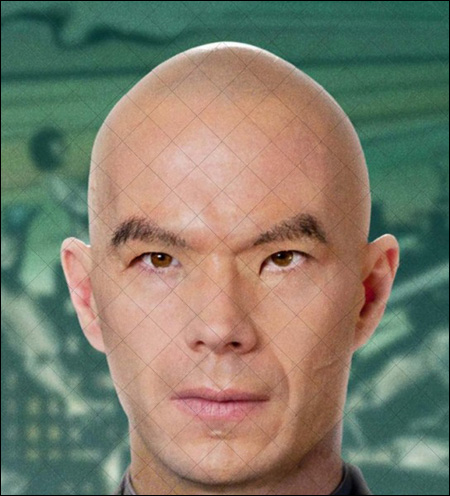
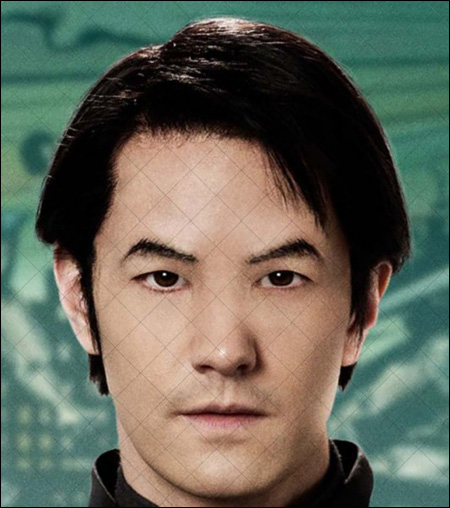
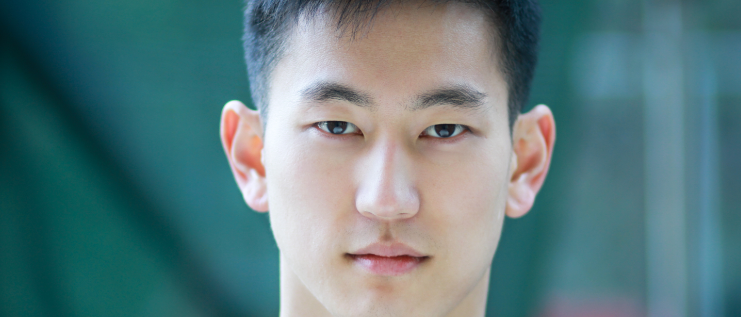
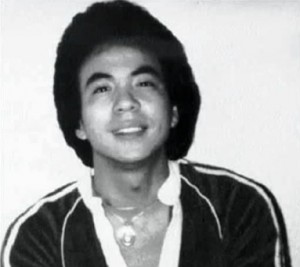
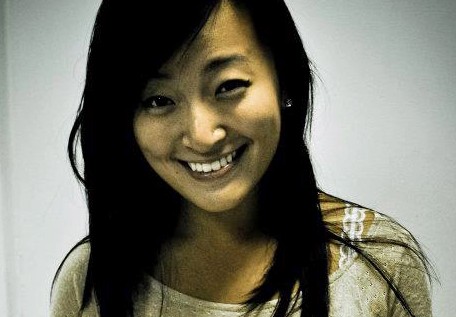

Pingback: Lucy Liu to be Atypical “Watson” in Elementary - ALIST Magazine